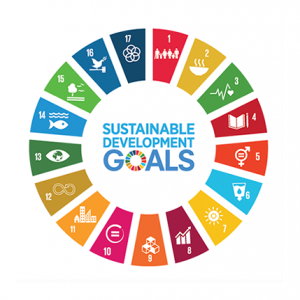Example Teaching Activities
The following section contains some basic ideas to begin teaching about sustainability. Sustainable development is best understood as a multi-dimensional construct, and as such teaching about sustainability is best served by emphasising the following principles:
- Inter-disciplinary elements: Appreciation of the perspectives and priorities of other academic disciplines
- Experiential learning: ESD is best served by engaging students with real problems. The focus on solutions to real issues means that students feel empowered to make positive changes
The activities are broken down into:
Introductory – Assumes no or little prior knowledge of the Sustainable Development Goals on the part of the students and focuses on enhancing basic understanding of sustainability and the SDGs in the context of the discipline.
Exploratory – Presupposes that the students have a working knowledge of the SDGs, and consequently seeks to introduce interdisciplinary perspectives and broaden experiential learning opportunity.
Example Introductory Activities
The role of (discipline) in creating a sustainable future
Students discuss what role graduates from their course would have in helping to create a sustainable society.
Session Aims: Consider relevance of their course in context of global sustainability challenges.
Sustainability in (discipline)
Students watch introductory videos or TED talks explaining concepts of sustainability and the SDGs relevant to their discipline
Session Aims: Gain basic knowledge on sustainable issues and exposure to core issues
Ethical Sustainability
Students discuss the ethics of sustainable behaviours, personal morality and beliefs, and social norms
Session Aims: To consider the systemic elements of sustainable behaviours at individual, communal, and the global level
Relevance of the SDGs to (discipline)
Student or staff led discussion on the SDGs, relevance (or lack of) to the discipline, personal beliefs in them. Discussion on whether the are equally important globally / locally / within the discipline
Session Aims: Establish existing knowledge, discuss SDGs, encourage students to reflect on their capacity to address the SDGs
Sustainable Behaviours
Students to think about their own behaviours on a given topic (i.e., use of plastics) and discuss what motivates their behaviours.
Session Aims: Increase awareness of their own behaviours. Encourage students to think about the relationship between attitudes (what people say they’ll do) and behaviours (what they actually do); empower students to believe they can make positive changes in the world.
Conflicting priorities in sustainability
Students are given a scenario, discuss the aims of each stakeholder, act out discussions between the groups, reflecting upon the motivations of each group
Session Aims: Consider different perspectives, practice working towards a consensus
Example Exploratory Activities
Conflicting priorities in sustainability
Groups of students discuss a scenario where different stakeholders may have different aims and priorities with regards to Sustainability. How are these differing priorities managed and how can a consensus be reached.
Session Aims: Consider different perspectives, practice working towards a consensus
Cost-benefit analysis
Students to examine a sustainability problem which is addressed by one or more SDG, and its potential solutions, with a focus on the financial, social and environmental costs and benefits. Selection of a particular solution, with rationale for having done so.
Session Aims: Promotes consideration of different perspectives and priorities within them; analysis of how each SDG has different costs and benefits associated with them; negotiating with others concerning potential solutions, development of a viable solution
Kent Sustainability Challenge
Groups of students are given a sustainability challenge problem that is faced at the University of Kent to work on, with a focus on developing workable, nuanced solutions
Session Aims: Promotes planning, team work, encourages analysis of relevant issues, evaluation of the merits of competing solutions, and development of viable actions
Applying the SDG Lens
In conjunction with University staff, students engage with the design, implementation, monitoring, development and evaluation of University projects relating to sustainability.
Session Aims: Consideration of long-term issues, negotiating with multiple stakeholders, inter- & intra-disciplinary thinking, cost-benefits analysis, engagement with applied solutions
